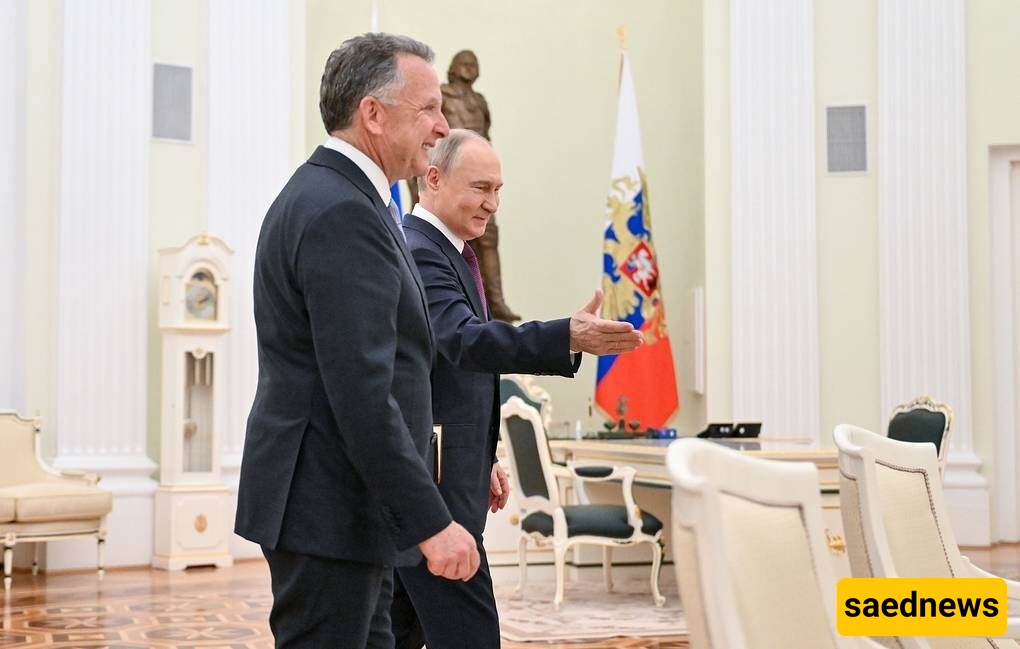SAEDNEWS: As relations between Washington and Moscow hit their lowest point in decades, Donald Trump has confirmed that his special envoy, Steven Witkoff, recently traveled to Moscow. This unexpected trip has sparked speculation about hidden objectives, unofficial messages, and a possible shift in Washington’s diplomatic approach.

According to Saed News, quoting France 24, amid a diplomatic climate increasingly marked by tension, sanctions, and threats, the news of Steven Witkoff’s trip—special envoy of the United States to Russia—put cold water on speculation about a complete severance of Washington-Moscow ties. Donald Trump, the former U.S. president whose political presence has intensified in recent weeks, confirmed the meeting and described it as part of “necessary consultations in critical times.”
However, Witkoff’s visit to Moscow—a relatively lesser-known figure in official diplomacy and more active in real estate and economic relations—raises important questions: Is the U.S.—or at least a faction within it—seeking to open new communication channels with the Kremlin? And to what extent do these consultations reflect Washington’s official policy or informal efforts by Trump to influence future foreign policy?
Some media sources have reported that Witkoff’s meetings in Russia involved not only economic issues but also high-level discussions on the Ukraine war, sanctions, and the status of American hostages. So far, neither the White House nor the U.S. State Department has issued an official stance on the trip, fueling speculation about parallel efforts or attempts to establish back-channel communications.
At the same time, Witkoff’s trip sends a clear political message: Trump is preparing the ground for a possible return to power and is already signaling to global actors—including Vladimir Putin.
Foreign policy experts believe this trip may be part of Donald Trump’s informal strategy to highlight a different approach from the Biden administration regarding Russia and the war in Ukraine. While Biden focuses on pressure, sanctions, and military aid to Kyiv, Trump—if he returns to power—might pursue a path of dialogue and negotiation, a model he has previously advocated.
At the same time, these moves have raised concerns among America’s European allies. A European diplomat, speaking to a German media outlet, stated:
“If these meetings occurred without coordination with the official U.S. government, they could deepen serious divisions within the Western front against Russia.”
With the U.S. presidential election approaching, any diplomatic activity by political figures like Trump could have a significant impact on public opinion and the future direction of American foreign relations. Witkoff’s trip, therefore, is more than a simple diplomatic visit—it symbolizes a battle of narratives: Biden’s hardline policy against Russia versus Trump’s potentially more transactional and conciliatory approach.
Ultimately, although the details of this meeting remain shrouded in ambiguity, it is clear that today’s global tensions are not decided solely in the official halls of foreign ministries. Sometimes, an unofficial envoy can mark the beginning of a major shift in the course of global diplomacy.

